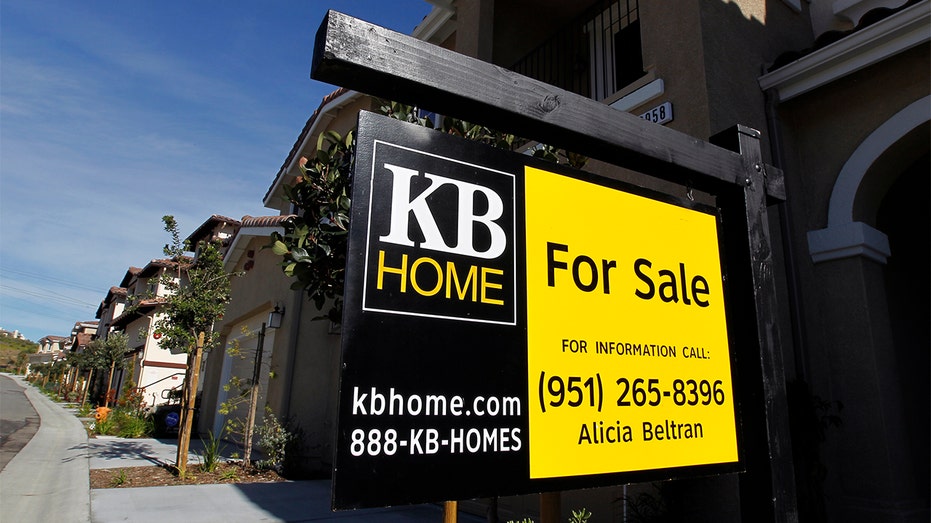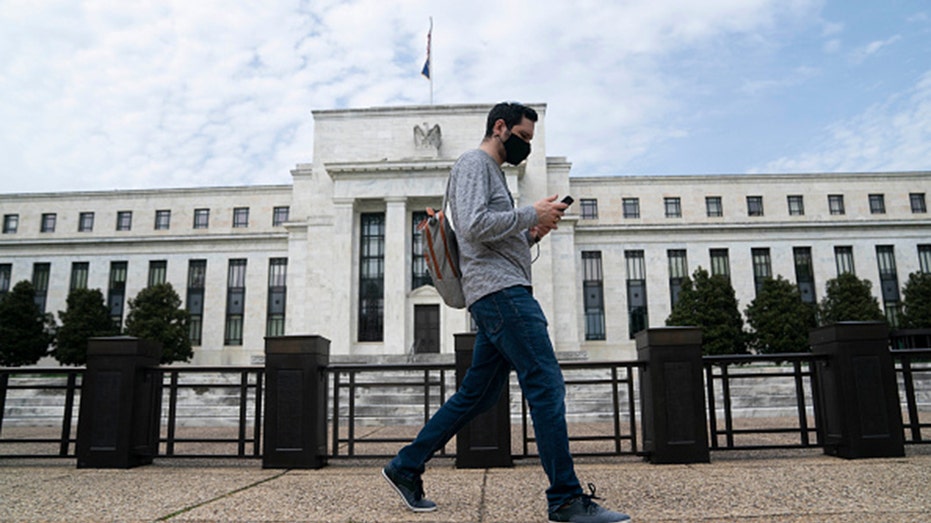Mortgage rates surge to 5.78%, highest level since 2008
Inflation pushing mortgage rates to highest level in 13 years
Inflation, worker shortages ‘squeeze’ business’ ability to meet demand: Rep. Kevin Brady
Texas Republican Congressman Kevin Brady discusses the housing market, inflation and clean energy disinformation on ‘Mornings with Maria.’
U.S. mortgage rates climbed to their highest level in 13 years this week as the Federal Reserve delivered the largest interest rate increase in decades to fight inflation.
Mortgage buyer Freddie Mac said Thursday that the average rate on the 30-year loan this week rose to 5.78% from 5.23%, the latest in a series of rapid increases and the biggest one-week jump since 1987. The rate is well above the 2.93% recorded just one year ago and marks the steepest level since November 2008.
INFLATION TIMELINE: MAPPING THE BIDEN ADMIN'S RESPONSE TO RAPID PRICE GROWTH
"These higher rates are the result of a shift in expectations about inflation and the course of monetary policy," said Sam Khater, Freddie Mac's chief economist. "Higher mortgage rates will lead to moderation from the blistering pace of housing activity that we have experienced coming out of the pandemic, ultimately resulting in a more balanced housing market."

Homes for sale in Carlsbad, California, Jan, 4, 2011. (Reuters/Mike Blake / Reuters Photos)
The average rate on a 15-year mortgage – which is more popular among homeowners who choose to refinance – climbed to 4.81%, up from last week's 4.38%. By comparison, the average rate on a 15-year mortgage was just 2.24% one year ago.
Rates have risen sharply since the start of the year, exacerbating the pressure on the U.S. housing market, which has seen prices continue to soar despite more expensive mortgages. The increasingly expensive cost of a home, combined with higher rates, is pricing more Americans out of the housing market.
HOW THE FEDERAL RESERVE MISSED THE MARK ON SURGING INFLATION
On top of that, inflation is rapidly eroding Americans' purchasing power: One analysis conducted by Moody's Analytics showed that higher prices are costing U.S. households on average an extra $460 per month.

A man walks past the U.S. Federal Reserve building in Washington on April 29, 2020. (Xinhua/Liu Jie via Getty Images / Getty Images)
The Fed is raising rates at the most aggressive pace in decades in an effort to tame sky-high prices and reduce consumer demand. On Wednesday, policymakers approved a 75-basis point rate hike, the first of its kind since 1994, amid signs that inflationary pressures in the economy are spiraling higher. While the Fed does not directly set the interest rate paid by consumers for mortgages, its actions influence them.
GET FOX BUSINESS ON THE GO BY CLICKING HERE
Still, it's unclear what the ultimate result of the Fed's interest-rate hike campaign will be; many economists believe the central bank could inadvertently tip the economy into a recession with its efforts to crush inflation.
The latest Freddie Mac average is based on its survey of lenders, which was conducted before the central bank's Wednesday meeting. Some rates climbed as high as 6% in the aftermath of the Fed meeting.





















